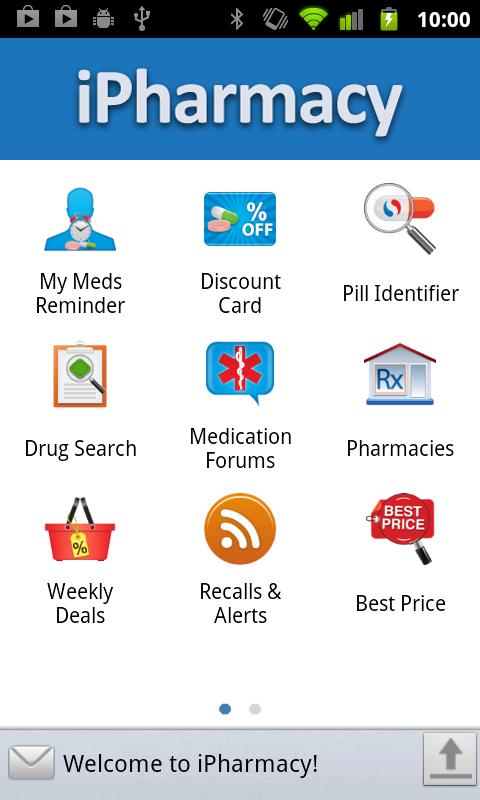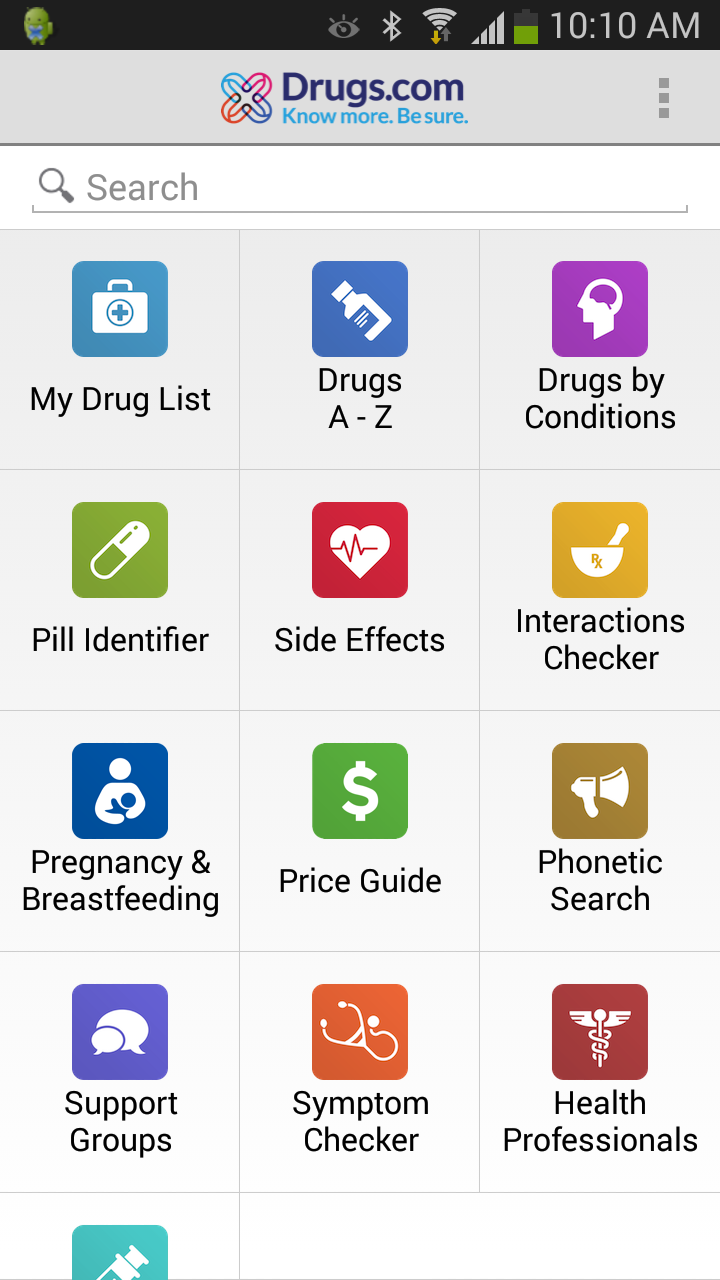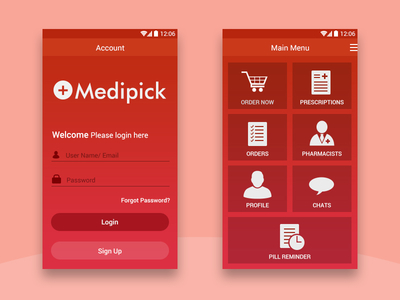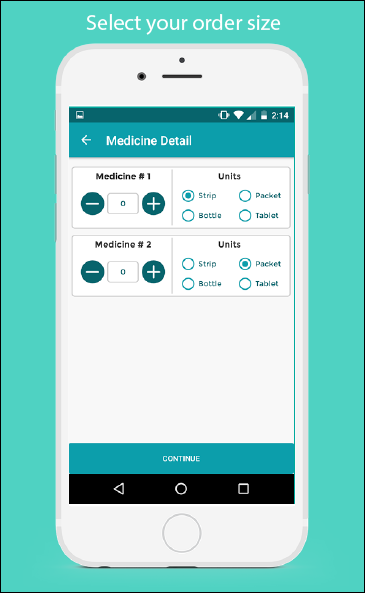Mobile Apps in the Pharmaceutical Industry
Mobile Apps have arguably defined how we live in our modern digital age; the development in smartphone and tablet technology has lead to a vast range of apps that offer seemingly infinite functionality. The pharmaceutical industry has been slow to tap into this vast potential, but that tide is slowly starting to turn.moPharma

The pace of technological development will always outpace wide scale industry adoption, but there is a clear need to implement mobile app development technology in the pharma industry. A recent study conducted by The School of Pharmacy and Biomolecular Sciences at Liverpool University aimed to examine the industry consensus of implementing mobile applications within pharmacies. Their survey was conducted across 600 pharmacies. The data concludes that pharmacists are supportive of mobile apps in healthcare, but a number of factors in the form of risk, company policy, and lack of regulation, restricts their use in modern day pharmacy practice. This issue is amplified with reference to national chain pharmacies.
This study was conducted as recently as April 2015, which is interesting as it shows that the debate is still being raised. It is also concerning that commercial legislation and company policy stands in the way of digital innovation. This restricts the opportunity to adopt technology, stifling development that could better patient care.
Current Situation
The wider pharmaceutical industry has slowly begun to introduce mobile app development to the digital marketplace, in particular to assist patient adherence. One notable application in this environment is the app, launched by one of the leaders in the pharmaceutical sector. It has great features, such as giving patients information about their prescription, and the opportunity to set up simple reminders and medication schedules. However, the mobile app is quite poorly designed, with a very basic user interface.
Alongside prescription based medication, also aimed to assist patients in more general health issues, such as giving up smoking, with the opportunity for a digital ‘quit coach’ in your pocket. These ‘light-touch’ applications facilitate user need, without stumbling across strong legislative barriers. Fortunately, these are becoming more common, with a raft of apps of this type now in various app stores across many platforms.
One of the larger challenges to address is the unification of apps across different markets and languages. Many of the apps offered by some of the larger pharma companies are either exclusive to certain markets, or only produced in English, then released to multiple countries. There needs to be a strong strategic direction made when releasing an app to a global market to ensure the broadest benefit to the greatest number of patients.
It's not all good news however, some of the key players in the Pharmaceutical Industry have yet to engage with Mobile app development as part of their product offering. Bayer Medical for example have three official medical apps according to their company website, these apps are only available for iOS. Each app suffers from poor user interface design, limited international availability and minimal long term support, one of their apps for example was last updated in 2012.
There is a need to adopt digital technologies, by doing so it allows Pharma companies to stay on-trend, embracing and benefitting from the advancements in consumer technology, bridging the gap to patients.
There is a need to adopt digital technologies, it allows Pharma to embrace the advancements in consumer technology, bridging the gap to patients.
Innovation
Aside from the barriers, it is possible to successfully implement mobile apps in this industry. Revolutionary application that could act as a model for the future of healthcare consultations. It completely shifts the perception of the current referral process, by bringing a GP quite literally to your pocket. The app offers patients the chance to book consultations directly with a GP, Nurse, or Specialist Consultant, through video chat or in person. The service is paid for by the user at a relatively low monthly cost, acting as an alternative arm to private healthcare, which could create a real market shift, as it challenges existing providers in the way it approaches the patient journey.
Future
Mobile applications are merely the first step in a long future of technological innovations that will make their way into the healthcare sector. Currently though, the range of pharma apps on the market are still lacking. To deliver the best customer service, a broader number of pharma companies need to engage with the mobile landscape. Additionally, the apps that are out there are either out of date and poorly designed, App. There is a strong need to ensure that an app is designed from a patient perspective, with a clear user interface, and strong user journey. Furthermore, pharma companies need to provide patients with updates to their apps for future mobile OS releases, and updated functionality.
It is early days for the implementation of apps within pharma, but a field that is waiting to be taken advantage of. Innovation awaits.
Mobilizing Pharma: Mobile Apps and Devices
Today, fifty percent of Inspire’s members come to the community through their smartphones. Another twenty percent came through tablets. Mobile behavior has changed so much in just a few years that we wondered how patients are using mobile apps on their devices to manage their health conditions.
In our 2015 Annual Survey, 72% of responding Inspire members had never used mobile apps or tools for healthcare. By 2016, 50% of the respondents said they used these resources to manage their health.
For the 28% that reported using mobile resources in the 2015 survey, the top uses were to help prepare for physician appointments, to search for information online and to set up dosing reminders.
In particular, the percent of smartphone users that searched for information online increased dramatically from 56% in 2015 to 71% in 2016.
Is it time to mobilize pharma?
Yes, and some companies are already finding ways to do it. In 2016, efforts to engage patients on mobile devices have focused on clinical trial recruitment and data collection and chronic disease management.
Mobile apps can help mitigate the distance between patients who may be eligible for a clinical trial and the actual trial location. For example, researchers can track and connect with participants remotely via wearable technology.
“Technology really is enabling us to treat a large number of geographically diverse patients,” said Greg Powell, director of Safety Evaluation and Risk Management at GlaxoSmithKline.
Some companies have chosen to focus their mobile strategies on patients with chronic disease, particularly diabetes and asthma.
For example, Eli Lilly invested in insulin pen caps linked to an app that reminds patients with diabetes to take their medication and provides text access to a support team, if the patient needs it. Further, in November 2016, the FDA approved a digital sensor made by Propeller Health for GlaxoSmithKline’s Ellipta inhaler, which is used to treat asthma and chronic obstructive pulmonary disease.
Such technology could lead to improved outcomes for patients. A study published in Thorax showed that the SmartInhaler by Adherium in the UK significantly improved adherence in children.
Even though these are exciting examples; overall, pharma has been cautious in app development due in part to three main barriers:
1) General trends in adoption and usage
Mobile users in the general public have access to a large number of apps, but 62% of users will use an app only 11 times before it’s deleted.
2) Phama’s past practices
For pharma in particular, a 2014 report of industry-specific apps faulted companies for limited public availability and largely focusing on pharma products. This made each app less generalizable and more concentrated on an individual product, which may explain the poor penetration into the market.7
3) FDA regulations
At this point, the ambiguity of FDA guidelines can slow down app development. Determining whether their app would be considered a medical device can be difficult. To assure they are within guidelines, pharma may err on the side of apps that do not answer patients’ needs. The uncertainty of what is, or is not, regulated as a medical device may be hindering pharma’s fuller activity in mobile.
How the Pharmaceutical Industry Can Gain from Mobile
When looking at the impact that technology, research, and innovation have had on medicine through the past few centuries, it is wild to see how much practices have changed in the diagnosing and treatment of patients. The Pharmaceutical Industry has skyrocketed in the past century as the medicine being prescribed is becoming more powerful each day. However, the growth of this industry has not came without setbacks. In the past decade the Pharmaceutical Industry has gone through polarizing debates such as mainstreaming pharmaceutical information, regulating client’s prescriptions, security of clientele records and many other intense topics. As research continues, pharmacists are becoming more knowledgable of the medicine that they are providing. The customers are demanding greater clarity with their prescription pickups, side effects, and any other relevant info so that they can be informed of the medicine as well.
People live busy lives and their medicine can often slip their minds as they are on their way out the door in the morning or in a hurry to get home from work. However, medicine plays a vital role for many and forgetting to take a daily dose or to pick up a prescription can be detrimental blow to one’s day. Pharmaceutical companies can aid their customers in many ways by developing B2C mobile applications. Features such as push notifications help remind you to take your medicine or tell you when a prescription has been delivered to your pharmacy. Also, customers can look up side effects to their medicine if they can’t reach their clinician, or if they have a quick question that can be answered without a phone call. Novartis offers a mobile app called “My NET Manager” which is an app for neuroendocrine tumor (NET) patients, to help educate them on their condition. On top of push notifications for medication and appointment reminders, and side affects information, this app also allows patients to review and track test results. Physicians are often very busy so giving the patients this information can reduce stress and time wasted on waiting for the physicians to respond. Another way B2C applications can help pharmaceutical companies is with setting up clinical trials. Providing patients and doctors with an efficient medium to communicate allows both sides to find each other when doctors are looking to start a trial. Patients also can also educate themselves on finding the best trial for them by searching trials within the application through various filters to tailor to their trial requirements. Ultimately, this will get the right patients into the correct trials allowing for safer and more thorough experiments.
The need for mobile within the pharmaceutical industry also extends to B2B or B2E applications. Mobile apps can allow physicians to collaborate and share information on drugs, patient conditions, successful treatments, and more, enabling faster and better decision-making. Say a physician is interested in giving a new drug to his patient but is unsure about how effective it is and what side effects have been observed. Giving them a mobile app with easily searchable information on trials done on that drug can allow them to view other physicians studies, and even contact them through the app if they have further questions. Also, with the ability of mobile apps to connect securely to Electronic Health Records and manage user authentication, authorized clinicians can also share specific patient details and images in order to improve diagnoses and treatment plans.
Prior to the digitalization of business processes, paper-based records were kept highly confidential since paper documents were more likely to fall into the wrong hands or get lost. This closed system, while securing patient information, also acted as a barrier to shared learnings, ultimately impacting patient outcomes. Now, healthcare providers work in a more open and collaborative environment where mobile apps have security features such as login credentials to make sure records are only accessed by those who are authorized. Sharing and collaboration are the future in industries such as pharmaceutical, and mobile, social, cloud, and open technologies are the perfect foundation for this.
The legacy systems and applications that pharmaceutical companies currently use, while highly valuable to the business, are often outdated and not designed for the digital era. However, effective mobile apps rely on the data from these systems of record as well as securing the flow of data from device to the backend systems and vice versa. Mobile Backend-as-a-Service (MBaaS) and Mobile Application Platforms emerged with the advent of enterprise mobility to enable such secure and controlled integration through API-based approaches that make the data from legacy systems consumable by the mobile app on device. By switching to mobile apps, physicians can now access records, trials, and other valuable information on the go and in an efficient, timely and secure way. Even when they are in remote areas with poor or no network connectivity, data sync functionality allows them to work offline and sync their data once back online.
There are many different options when deploying a mobile app strategy. If an organization has multiple mobile app projects that need to access backend systems, then developing on a mobile application platform is a highly efficient option as the platform centralizes the backend integrations (APIs, common backend connectors, cloud service connectors, etc.) and makes them discoverable and reusable to the frontend developers. This platform approach also gives a high degree of visibility and control to IT without stifling frontend app design and innovation by the business people. By using a platform, the app code, credentials and core management functions are in one central location making the lifecycle management of the apps much more efficient than bespoke app development.
Collaboration and innovation is the key to advancing the way that pharmaceutical companies operate. Giving doctors and physicians the ability to collaborate with each other and also share that information with their patients, will educate and lead to faster innovation and improved patient outcomes. Identifying and prioritizing pharmaceutical business processes that lend themselves to the mobile channel and yield opportunities for quick business outcomes is always a good starting place.
Digital Revolution with Mobile Apps in Healthcare & Pharmaceutical Industry
Due to the rising use of smartphones and mobile app stores, fitness and healthcare apps are gaining a substantial amount of popularity of the last two years. A firm growth in wearable technology is also a subsidizing factor in this scenario. Pharma and healthcare executives are well versed with this transformation and are experimenting with a wide range of digital initiatives. Mobile app development companies are helping the medical industry in this and are playing a vital role in the digital revolution of the healthcare sector. With the passage of time, the pharma app industry is only going to touch the zenith.
Let’s discuss the major factors that the pharma/ healthcare sector and mobile app companies can consider while making apps. These factors can also change your perspective towards the medical applications.
1. Fitness app for chronic diseases
A huge fraction of people is constantly suffering from autoimmune, metabolic, genetic and other severe diseases that make patients follow strict precautions and guidelines. Doctors recommend them routine checkups and regular supervisions. IT companies have made numerous apps that can look after such complications. Considering their knowledge and proficiency, it is much more advantageous for medical companies make pharma apps that address the issues of the patients.
2. Locating free health care clinics and hospitals
Majority of population in the world still cannot pay for health care services. Pharma companies can make use of this matter and make a mobile app that can take care of such real issues. The app that can send notifications to people about the free health checkups for the specific ailments, plan/ schedule appointments and make them remind about the schedule beforehand. Providing a genuine helping hand is also a considerable way of endorsing your brand.
3. Ordering drugs
An online transaction is a buzzword in this day and age. Right from home delivery of food to booking cabs - people are getting used to doing everything online. Pharma companies can add one more service in this list i.e. Doorway delivery of the prescribed medicines.
4. Cross checking clash by multiple medications
Pharma companies can make app's recording patient information. With this, when the concerned person will buy recommended medicines for another ailment, the app will prompt him/ her of the reactions or allergies that can happen with the clash of multiple medications. This can endorse both the brand and the product and gather a massive following from the crowd of patients.
5. Social network connecting patients
Diseases such as Multiple sclerosis, Amyotrophic Lateral Sclerosis, Cerebral Amyloid Angiopathy, Immuno Deficiency Syndrome, etc. do not have any proper cure and pose patients with a lifelong struggle to cope with. Healthcare and pharmaceutical companies can build social networking service apps that can connect patients having similar ailments with each other. This will make experienced patients, assist one another and control their medical issues, while conducting day-to-day activities.
4 Great App Ideas for Pharmaceutical Companies
The pharmaceutical industry is no stranger to mobile apps, with Big Pharma companies having an average of 65 mobile apps, mostly available in the public app stores for consumer use. However, pharma companies are reporting poor download and app engagement statistics, which is leading some to ask the question: are apps worth the effort?
Our opinion? A big “heck yes, they are”. From where we’re standing apps are set to become key tools across all industries, including the pharmaceutical industry. But if that’s the case, where exactly are pharma companies going wrong?
We believe that the main issue is that they’re focusing primarily on customer-facing and B2C apps, whereas they could also be looking at enterprise apps to make an impact internally, such as increasing productivity and streamlining internal processes.
As an incredibly innovative and fast-moving industry, it is important that pharma companies can keep up with that volume of change and innovation and to remain among the top companies in the world. And this is exactly where apps can help.
Imagine for example a sales app that could help pharmaceutical reps improve their product knowledge and save them time in client meetings. If they can save 20 minutes a day by having product knowledge available on their mobile device rather than having to look it up before the meeting, that will quickly add up to big numbers, giving that rep an additional 400 minutes a month (or 10 work days a year) to work on other tasks such as more client meetings, in turn leading to more sales.
In this article we explore some of our ideas on how pharmaceutical apps can capitalize on these “micro moments” to help streamline workflows and ultimately help increase employee knowledge and productivity, whether in manufacturing or sales.
Without further ado, here are our top four ideas for great pharmaceutical apps:
1. Sales app
If you’re a pharma sales rep you’ll already know how important it is for you to have as much knowledge as possible on the drugs you’re aiming to sell.
An app can help by allowing you to easily consult all relevant sales and drug information, plus clinical studies, safety information and competitor product information. This can help you improve your understanding of the drug, sell it better and answer any questions from doctors more accurately.
Having access to all this info on your mobile device gives you better mobility while traveling between meetings, so that you can consult information on the go and better prepare. And who knows? It may just be the special edge you need to stand out from competitors.
2. Medical reference app
Having to consult reference books for medical information can be a real pain, especially if you’re in the middle of a meeting far away from medical resources.
Even worse, paper-based manuals can change daily as new studies are published, which means that these need to be regularly updated.
Enter here a medical reference app: now you can consult any medical reference book in digital format no matter where you are using your smartphone or tablet. What’s more, all reference manuals can be instantly updated everyday as new and amended information becomes available.
Can you picture how much easier meetings and lab work would become thanks to this simple change? Or how much time you could save in futile medical reference search and consultations? All this saved time gives you potential to invest it elsewhere, helping you stand out from competitors and stay at the top of the industry.
3. Training app
Let’s face it: no one likes having to spend their valuable time training new employees, especially in such as fast-paced industry such as pharma. But unfortunately, training is a key part of working in such a heavily regulated, not to mention constantly changing, industry.
Apps offer you a way to ensure your employees’ knowledge is up-to-speed without compromising on additional budgets or other employees’ precious time. For example, apps can provide new employees with a wide range of training materials, making learning interactive and fun!
Videos, interactive charts and embedded documents are great examples of this and can empower employees to take ownership of their learning, as they will know better than anyone what kind or learning works best for them.
Training apps can also include “gamification” elements (for example exams and quizzes) that take employees through different topics and scenarios. These allow them to test themselves and track their progress.
All this is the perfect recipe for fun, engaging and effective learning that allows employees to retain knowledge more easily. And you won’t even need to lift a finger.
4. Medication tracking and analytics app
In this article we’ve focused mainly on internal apps; however, some customer apps can also be used to help support internal processes by collecting valuable data and acting as a brand promotion device.
A medication tracking app is the perfect example: on the one hand, you’ll be giving customers a great tool that will make them trust your brand; on the other, the data they log on the app could give you great insight into how the drug is performing.
The app could include simple features such as medication reminders and basic drug information, but it could also ask users to log info such as how the drug is performing and what side effects they’re experiencing. This could then prove invaluable data for future clinical studies and trials. Talk about killing two birds with one stone!
What’s more, this is the perfect way to gain insight into an area that is often unavailable to pharmaceutical companies: what happens to their drugs once they reach the market.
Final Thoughts
For pharmaceutical companies interested in developing mobile apps, the 2015 and 2016 Annual Surveys provide guidance.
Patients under the age of 50 are much more likely to use a smartphone app or tool. Most patients (73%) use their smartphone for more than one health-focused use. Thirty percent of respondents that haven’t used a smartphone for healthcare believe that using some type of mobile app/tool would be indeed be helpful in managing their medical conditions or general health. This number is more prominent among younger respondents.
A focus on younger smartphone users to learn what they need to better cope with their conditions is a great starting point.





Discuss about post